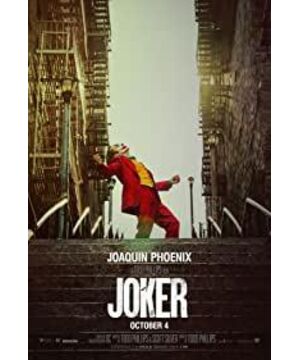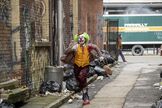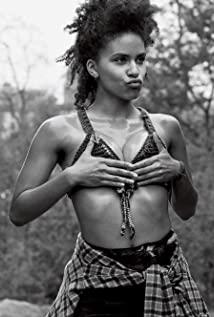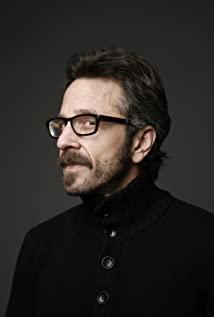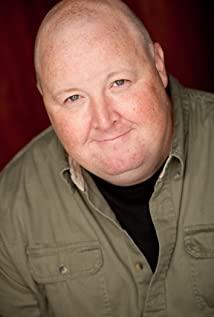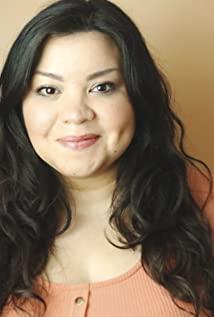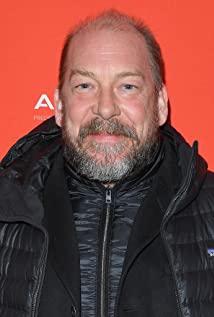"Joker" is destined to be extraordinary.
The reason is simple: it broke the circle, and it broke more than one.
First, the fandom .
Who's asking for Joker's resources?
Comic fans, superhero fans, ordinary movie fans who don't watch superhero movies, and even people who don't watch movies often want it.
"Do you have any resources for The Joker?"
Recently, when friends chat, they all say hello.
Second, the awards circle .
Before "Joker", what happened to superhero movies?
At most a few technical awards at the Oscars.
But "Joker" was not only shortlisted for the first time in Europe's top three, but also won the Golden Lion Award in Venice in one fell swoop.
That's Venice, which has always advocated "artistic exploration".
Did you choose "Joker" this time?
Really intriguing.
Finally, and most importantly: it also broke the mold circle of superhero movies.
After "Reunion IV", the superhero mode created by Marvel has come to an end.
Who will break through?
It's The Joker.
In "Joker", you don't see superpowers, high IQs, and you don't see the opposition between good and evil, and visual effects.
It no longer worships flying heroes, but focuses on individuals at the bottom.
It goes very deep, and shoots a depth that many literary films have not been able to reach.
So the question is, where is the cow in "Joker"?
Someone said: image .
really.
The image quality created by "Joker" is absolutely first-class.
Five words can describe it: exquisite decadence .
This kind of temperament is not only reflected in the street scenes of Gotham City in the 1980s, but also in the characters.
In other words, it shoots the physical space, but also the mental world of the clown.
Loneliness, exhaustion, depression, distortion... all kinds of emotions are gushing out in the externalized image.
Someone said: show .
Needless to say?
Joaquin Phoenix is absolutely perfect at playing the Joker.
Beyond Heath Ledger? For the time being. But there is no doubt that Joaquin's performance is more difficult.
He not only has to perform the evil and madness of the clown, but also the weakness and mourning of Arthur, but also the entire blackening process from Arthur to the clown.
This difficulty can be imagined.
Joaquin Phoenix certainly did.
Another said: Criticism .
Yes.
"Joker" shows us a story about a person from the bottom who is eager to integrate into society, and after repeated setbacks, he is finally pushed to the opposite side of society step by step.
To put it bluntly, create a murderous maniac.
Who made the clown?
Everyone waved their hands, saying it had nothing to do with them.
But that's the root of the problem. Unconscious harm is the most terrifying thing.
The above advantages are all correct.
But I want to say that there is one more important thing that people ignore, and it is the key to making "Joker" special.
what is it then?
01 The sadness of comedy
"Joker" is a tragedy.
It tells the story of a lonely man who was abandoned by the world.
This story is so sad, so cold, that it makes people laugh.
But it is strange that the director has inserted a lot of comedy elements into the film.
From Chaplin's " Modern Times " during the silent film period, to the musical comedy " Walk With Me ", to the heroic movie " Pink Zorro ", to the display of American talk show culture ...
Comedy elements can be said to be everywhere.
Why is this happening?
Is it just that the director finds it funny?
of course not.
This implies the director's deep intentions.
Todd Phillips is an American director with background in comedy films.
He knows comedy very well, otherwise it would be impossible to make a movie like "Borat".
In the film, Kazakh anchor Borat visited the United States. Due to the gap between the rich and the poor and cultural differences, he made a lot of jokes.
For example, the elevator room of a luxury hotel is used as a room, and bed sheets are put on it to sleep; another example is to bring the custom of robbing marriage to the United States, and he was arrested in the police station.
The most ironic scene comes at the end of the film, when Borat finds himself at odds with the American, but falls in love with a prostitute. In the end, he married a prostitute and returned to his hometown, not wanting the American prostitute to be transformed into a goddess who everyone lined up to worship.
This movie captures the essence of comedy particularly well.
What is comedy?
Comedy is exploitative.
It exploits the tragedy of others and fulfills its own laughter.
From this perspective, when we watch "Joker" again, we can instantly understand what the director wants to say.
There is a scene in the film that is very important.
In the theater, a group of wealthy people from the upper class were watching Chaplin's "Modern Times". On the screen, Chaplin was skating on the edge of the cliff, and everyone laughed.
Arthur on the side also laughed, at that time he didn't realize the cruelty behind this smile.
In fact, just think about it for a moment: Arthur is in the same situation as Chaplin on screen.
They were all dancing on the edge of the cliff and could fall at any moment.
Sadly, what awaited them was not a pair of helping hands, but countless pairs of indifferent eyes and laughter one after another.
That's the cruelty of comedy.
It acquiesced in the indifference of the tragedies of others, and took pleasure in it.
And as a comedy director, Todd Phillips knows this cruelty well.
So he kept inserting comedy elements in "Joker", those jokes against the disabled, the ridicule of the dwarf, and the ridicule of the poor... To remind us that laughter is sometimes a kind of violence.
And these laughter towards the bottom, together constitute a kind of social pressure, and finally fell on Arthur.
Why?
Because in the whole social structure, Arthur is at the bottom.
Beneath him, almost no one could be seen; but when he looked up, there was a world of red dust.
Unfortunately, in the power chain formed by "laughing", he is at the end, and he has become the object that everyone can make fun of.
So, can Arthur laugh?
It's hard.
If you don't believe me, watch Arthur's three laughs in the film, without exception, they all encountered violence.
On the bus, he was scolded by his black mother.
On the subway, he was severely beaten by three young men.
In the bathroom, he was punched in the face by Thomas Wayne.
Have you discovered the ingenuity of the director?
Everyone from the rich, to the common man, to the fellow black people, took Arthur's laugh as an offense.
The subtext behind it is: You are also qualified to laugh at me?
So Arthur's tragedy is inevitable.
The person who had the least power to laugh, had a strange disease that caused him to laugh out of control, which undoubtedly accelerated his destruction.
It's not over yet.
The director stepped up again, making Arthur fall in love with comedy, and he longed to be a stand-up comedian.
In order to learn humor, he went out to listen.
Pay attention to the scene: the talk show actors on stage are talking about the love affair between a male professor and a female student, and the well-dressed audience below the stage burst into laughter. Only Arthur can never get the laugh.
Why?
Because he doesn't understand, because the life in the joke is too far away from him.
He couldn't grasp the essence, and in the end he could only write down two innocuous learning experiences in the notebook: "Pay attention to eye contact, and jokes about sex must be funny."
No way, he was destined to not be a comedian.
Because he doesn't have much room to play in creating downward laughter.
Finally, reality gave him the fatal blow.
One of his failed talk show performances was put on the "Murray Franklin Live Show" and became the object of ridicule.
The cruelty of comedy is fulfilled again.
And still with such a bizarre logic: a tragic character who dreams of being a comedian, he is not funny at all, but he looks funny when he is not funny.
In this way, Arthur's tragedy has once again become a comedy in the eyes of others.
Comedy is used to illustrate class, and laughter is used to write power.
This whole set of deduction logic was subtly embedded into the text of "Joker" by the director.
In this way, he realized a kind of reflexivity, pointed out the cruelty of "comedy", and implemented it on the fate of the characters, thus achieving a perfect unity of content and form.
And there is only one ending of the story: Arthur is completely blackened into a clown.
He killed two people.
One is a former colleague Randall, not only for revenge, but because Randall once again humiliated the dwarf in front of him. At this time, he could no longer tolerate himself, and turned a blind eye to the laughter towards the bottom.
Another is talk show star Murray. On stage, Arthur shot him, the "King of Comedy" who had mocked him all night, to finish off the bottom line.
From then on, he finally stopped suppressing his laughter, and could laugh unrestrainedly.
Just as tragedy and comedy are two sides of the same coin, so are Arthur and the Joker.
When Arthur turned into a clown and looked at the same world again, he said, "I used to think my life was a tragedy. But I know now, my life should be a fucking comedy."
02 Extreme loneliness
Aside from its reflexive expression of comedy, the second topic "Joker" seeks to explore is more timeless: about loneliness .
Everyone has experienced loneliness, but you must never experience extreme loneliness.
What Arthur faced was extreme loneliness.
At first, he was forced.
We watched his connection to the world, stripped away in layers.
He first lost his job, he lost his (self-confessed) friends, he was ostracized, he was ridiculed, and when the government cut the welfare budget, he lost psychological assistance...
So far, he has almost cut off his ties with society.
Oh no, there's a little interlude.
Arthur killed three young white men on impulse. They were employees of the Wayne Group. They were hated by the bottom people in Gotham City, where the disparity between the rich and the poor was huge.
In this way, Arthur became a "hero" worshipped by everyone.
However, these fanatical admirers, like real groupies, can't really understand Arthur at all. They just use Arthur as a symbol, a flag, to express their desires and anger.
Seeing that the newspaper called himself a "Vigilante", Arthur dismissed it.
Because what is more lonely than being crowded out is the loneliness cheered by the crowd.
In the end, Arthur learned about his mother's life experience and knew that his mental illness was probably caused by his mother's domestic violence.
This time, he killed his mother with his own hands, and cut off his last connection with the world with his own hands.
He chose not to resist, he accepted his loneliness.
Why?
Because I thought about it.
In order to integrate into the society, it is not that he did not try hard.
He also worked hard, took care of his mother, and treated strangers kindly...
But what did he get?
On TV, the rich said in a high-spirited tone: The poor are poor because they do not want to make progress. They have never really cared about the people at the bottom, let alone how difficult it is for them to survive.
And what about the people at the bottom?
It didn't get any better either.
They also saw Arthur as an outlier, so desperately Arthur wrote in a notebook full of jokes: " The worst thing about being mentally ill is when you're expected to pretend you're not sick. "
Yes, that's how Arthur was abandoned by society.
He is anti-elite and anti-mediocre.
In this world, he no longer expects to be in the company of anyone, and he no longer desires to be accepted by any kind of social system.
Since then, he has become an extreme loner.
And after the extreme loneliness, he ushered in the ultimate freedom.
In the final talk show scene, he told a "joke":
knock on the door. I'm a cop, ma'am, your son was hit and killed by a drunk driver.
The crowd exclaimed, and he looked disdainful.
When the host asked him, "Why did you kill those three young people?" and asked about the motive again and again, the Joker replied: " They sang off-key, that's why they died. "
Yeah, who defines funny or not?
Who defines right and wrong?
Who will define whose life is valuable and who deserves to die?
The Joker completely disregards the rules of society.
He became someone who lived completely in the subjective world, in other words, he redefines the rules of this world. And the only rule is: he has the final say.
That's the beauty of clowns.
He logically dominates his own destiny, and because of this, he has gained the ultimate freedom.
This freedom, of course, is dangerous.
It's even someone else's hell.
But let me ask, is there any seductive thing in this world that is not dangerous?
Finally, let's look at how the director completes the expression through audio-visual language.
It is not difficult to find that the main color of this film is "green".
The entire film is 122 minutes long, almost shrouded in ambiguous green light.
Green is also the color of the clown's hair.
It also occurs at countless decisive moments. Such as the color of the wagon when Arthur rides the bus; the color of the signboard at the drugstore he frequents; the color of the wardrobe where he got the gun; and the color of the lights when he dances alone in the bathroom...
Under the hint of green, he moved towards loneliness step by step, but also closer to freedom.
You can even understand that green is an externalization of psychological cues, and it is an irresistible temptation.
Temptation from clowns.
Eventually, Arthur dyed his hair green and became the Joker.
Instead of hiding behind the clown, he just painted the id on his face.
At that moment, he smiled.
Then a voice sounded:
"I'm a clown, I don't want to be funny, my life is a comedy."
"It's my own definition!"
View more about Joker reviews


